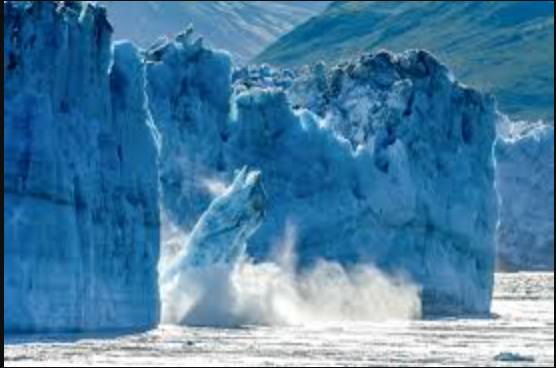Save the world's glaciers to save the planet: UN

Stay tuned with 24 News HD Android App

Saving the world's shrinking glaciers is a "survival strategy" for the planet, the UN said on Tuesday, a day after President Donald Trump announced the US would withdraw from the Paris climate accord.
United Nations agencies launched an appeal to scale up efforts to rescue the world's 275,000 glaciers, which are rapidly melting away as the planet warms.
The UN's educational, scientific and cultural agency UNESCO, and its World Meteorological Organization (WMO) weather, climate and water agency, pointed to the essential role these giant ice masses play, providing fresh water to more than two billion people globally.
"The preservation of glaciers is essential for our ecosystems, our economies and our planetary health," the WMO's deputy chief Ko Barrett said as the agencies launched the International Year of Glaciers' Preservation.
"Urgent and sustained reductions in greenhouse gas emissions are vital," she told the gathering in Geneva.
"But unfortunately we are heading in the wrong direction as levels of carbon dioxide and other heat-trapping greenhouse gases continue to rise."
The world's glaciers currently cover approximately 700,000 square kilometres (270,000 square miles).
Glaciers and ice sheets play a crucial role in regulating the global climate and store approximately 70 percent of the world's fresh water, which is essential for billions of people, the agencies said.
'Survival strategy'
"Preserving our glaciers is therefore not just an environmental issue," Barrett said.
"It is a survival strategy for both people and the planet."
But from the Alps to the Himalayas, these resources are melting away at an increasing pace under the effect of man-made climate change, sparked essentially by greenhouse gas emissions.
Tuesday's launch came after Trump announced he was withdrawing the United States -- the world's second-largest emitter after China -- from the Paris Agreement.
Critics warn that the move undermines global cooperation on reducing fossil fuel use and could embolden major polluters like China and India to weaken their commitments.
Global average temperatures already hit record highs in 2024, while over the past two years they temporarily surpassed a critical 1.5 degrees Celsius warming threshold for the first time.
In 2023, glaciers suffered their largest volume loss in five decades, according to WMO.
"Counterfactual industries and regimes around the world would deny" climate change, John Pomeroy, a professor at Canada's Saskatchewan University, told Tuesday's event.
But they "cannot deny their culpability in the destruction of glaciers that is occurring before our eyes", he said.
'Really dramatic'
"Glaciers don't care if we believe in science. They just melt in the heat."
Pomeroy warned that "restoring glaciers will take decades".
To do so would require "urgent policy changes" and "expanding measurements" to swiftly detect changes and provide early warnings of droughts and floods.
Stefan Uhlenbrook, head of the WMO's hydrology, water and cryosphere unit, described the situation as "really dramatic".
Fifty UNESCO World Heritage sites are home to glaciers.
But the agency has warned that the ice masses were expected to disappear from a third of these sites by 2050, regardless of efforts to limit temperature rise.
UNESCO estimates that the remainder can still be saved, but only if long-term average global temperatures do not rise by more than 1.5C above pre-industrial levels.
